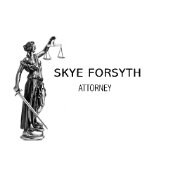Best ADR Mediation & Arbitration Lawyers in Hilton
Share your needs with us, get contacted by law firms.
Free. Takes 2 min.
List of the best lawyers in Hilton, South Africa
South Africa ADR Mediation & Arbitration Legal Articles
Browse our 1 legal article about ADR Mediation & Arbitration in South Africa written by expert lawyers.
- Resolving Cross-Border Commercial Disputes in South Africa
- Mandatory Consideration: Uniform Rule 41A requires all litigants in the South African High Court to consider mediation before proceeding to trial, making it a standard step in cross-border disputes. Enforceability: Settlements reached through mediation can be made an order of the court, giving them the same legal weight and enforcement... Read more →
About ADR Mediation & Arbitration Law in Hilton, South Africa
Alternative Dispute Resolution (ADR) mechanisms-such as mediation and arbitration-are increasingly popular in Hilton, South Africa, as effective ways to resolve legal disputes outside of the traditional court system. ADR presents more private, flexible, and often faster solutions for both civil and commercial disagreements. Mediation involves a neutral third party who helps disputing parties reach a settlement, while arbitration is a process where an arbitrator hears arguments and evidence from both sides and then makes a binding decision. In South Africa, ADR processes are supported and recognized by legislation, which gives parties in places like Hilton structured options to resolve their disputes without engaging in lengthy litigation.
Why You May Need a Lawyer
There are various scenarios where seeking legal advice in ADR mediation and arbitration is important. You might need a lawyer if:
- You are involved in a business or commercial dispute and want to avoid the courtroom.
- You are a party in a contractual dispute where the contract specifies mediation or arbitration as the dispute resolution method.
- You need assistance in drafting or interpreting an arbitration or mediation agreement.
- There are complex legal issues at stake, such as employment disputes, property disagreements, or family matters.
- You want to ensure that your rights are properly represented during the ADR process.
- You require help in enforcing an arbitration award or a mediated agreement.
- You need advice on whether mediation, arbitration, or litigation is the best approach for your case.
Local Laws Overview
South Africa has a well-established legal framework supporting ADR, reflected in the Arbitration Act 42 of 1965 and the Mediation Rules of the High Court. These laws govern the conduct of mediators and arbitrators, the enforceability of awards, and procedures for resolving disputes. In Hilton, as part of KwaZulu-Natal, local legal practices reflect these national standards but may also take into account regional business customs and community needs. Key aspects include:
- Voluntary Participation: Mediation and arbitration proceedings are voluntary unless a contract or court order mandates participation.
- Confidentiality: ADR proceedings are confidential, meaning details of the dispute and settlement typically remain private.
- Binding Decisions: While mediation leads to a non-binding agreement unless both parties sign a settlement, arbitration usually results in a binding award enforceable by law.
- Court Referral: Courts in Hilton may refer suitable cases to mediation or arbitration before allowing litigation to proceed.
- Recognition of Awards: Arbitration awards are recognized and enforceable in South African courts, subject to statutory requirements.
Frequently Asked Questions
What is the difference between mediation and arbitration?
Mediation involves a neutral third party helping the parties find a mutually acceptable solution, whereas arbitration leads to a binding decision by an arbitrator after hearing both sides.
Are ADR processes legally recognized in Hilton, South Africa?
Yes. Both mediation and arbitration are legally recognized and supported by South African law and courts, including those in Hilton.
Is participation in mediation or arbitration mandatory?
Participation is generally voluntary unless a contract or a court order requires it.
Will the details of my dispute remain confidential?
Yes. ADR proceedings are typically private and confidential, which is one of their main advantages compared to court cases.
Are arbitration awards enforceable in court?
Yes. Arbitration awards are binding and can be enforced through the South African courts if necessary.
Can I have a lawyer represent me during ADR proceedings?
Absolutely. You are entitled to legal representation during both mediation and arbitration, to ensure your interests are protected.
How long do ADR processes typically take?
ADR processes are usually much faster than litigation. Mediation can resolve disputes in days or weeks, while arbitration may take a few months depending on complexity.
What happens if we reach an agreement during mediation?
Any agreement reached can be made a written settlement. This settlement is binding once signed by all parties.
Can ADR be used for family or employment disputes?
Yes, it is commonly used for family law issues (like divorce settlements) and employment disputes because it is less adversarial.
How do I start an ADR process in Hilton?
You can contact a qualified mediator or arbitrator, approach legal professionals, or use local organizations offering ADR services to initiate proceedings.
Additional Resources
If you are seeking information or help regarding ADR, mediation, or arbitration in Hilton, consider reaching out to the following:
- South African Association of Mediators (SAAM): Offers resources and referrals to trained mediators.
- KwaZulu-Natal Society of Advocates: Regional body with legal practitioners experienced in ADR.
- Hilton Magistrate’s Court: Can refer cases to mediation or provide guidance on accessing ADR services.
- Legal Aid South Africa: Public service for those qualifying for legal aid, including ADR support.
- Department of Justice and Constitutional Development: Provides information on national ADR frameworks and processes.
- Private legal practices in Hilton: Many law firms in Hilton and nearby Pietermaritzburg offer dedicated ADR services.
Next Steps
If you believe ADR may be appropriate for your legal issue in Hilton, here are suggested steps:
- Identify and clarify the nature of your dispute and check if your contract mandates ADR.
- Consult with a local lawyer experienced in mediation and arbitration for advice on the best approach.
- Gather all relevant documents and information related to your dispute.
- Contact a qualified mediator or arbitrator, or approach legal organizations for referrals.
- If necessary, apply to the local court to refer your matter to ADR or to enforce an ADR outcome.
- Ensure you understand all agreements before signing, and don’t hesitate to ask your lawyer for clarification.
By following these steps, you will be well-positioned to resolve your legal matters efficiently and fairly through mediation or arbitration in Hilton, South Africa.
Lawzana helps you find the best lawyers and law firms in Hilton through a curated and pre-screened list of qualified legal professionals. Our platform offers rankings and detailed profiles of attorneys and law firms, allowing you to compare based on practice areas, including ADR Mediation & Arbitration , experience, and client feedback.
Each profile includes a description of the firm's areas of practice, client reviews, team members and partners, year of establishment, spoken languages, office locations, contact information, social media presence, and any published articles or resources. Most firms on our platform speak English and are experienced in both local and international legal matters.
Get a quote from top-rated law firms in Hilton, South Africa — quickly, securely, and without unnecessary hassle.
Disclaimer:
The information provided on this page is for general informational purposes only and does not constitute legal advice. While we strive to ensure the accuracy and relevance of the content, legal information may change over time, and interpretations of the law can vary. You should always consult with a qualified legal professional for advice specific to your situation.
We disclaim all liability for actions taken or not taken based on the content of this page. If you believe any information is incorrect or outdated, please contact us, and we will review and update it where appropriate.









